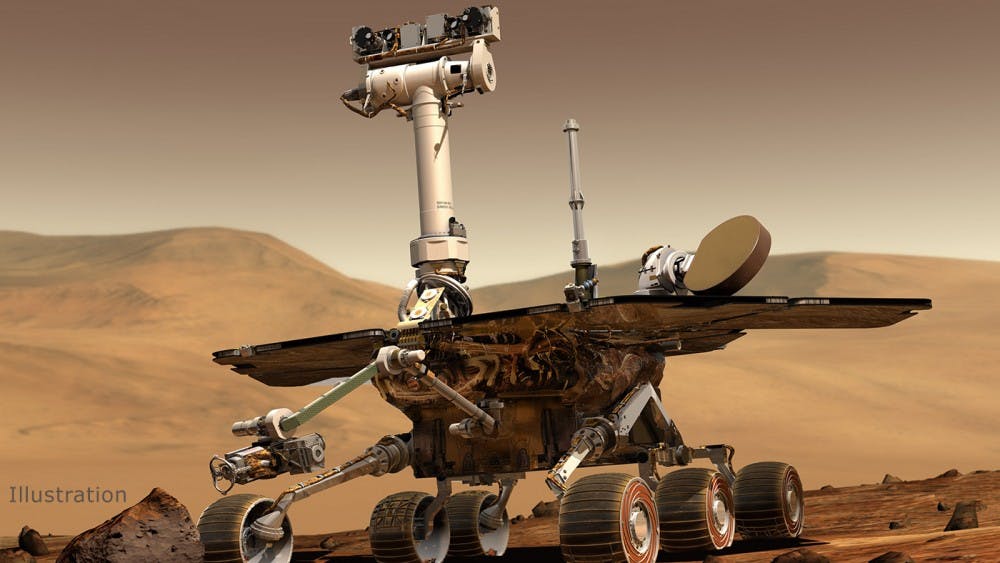Mars is one of the closest planets to Earth within our solar system and a strong contender for habitability under controlled conditions. Considering its unique status, it makes sense that many missions have been launched for the purpose of characterizing the planet. This would allow astronomers and scientists to better understand Mars and determine whether life could possibly exist there in the future. The National Aeronautics and Space Administration’s (NASA) Mars Opportunity rover is one of two rovers launched back in 2003 to probe Mars for any signs of past life.
Opportunity and its twin rover, Spirit, were part of a 90-day mission, but both exceeded that expectation by far. Spirit had impactful contributions, including the discovery of evidence that helped garner knowledge regarding the Martian wind, and allowed scientists to deduce that Mars was once wetter than the present day. Spirit’s mission ended on May 25, 2011.
On the other hand, Opportunity’s mission lasted longer. NASA’s description of the mission stated that, “Opportunity has made a number of discoveries about the Red Planet including dramatic evidence that long ago at least one area of Mars stayed wet for an extended period and that conditions could have been suitable for sustaining microbial life.”
Opportunity continued to transmit data until June 2018.
The rover had an impressive 15-year run that abruptly paused last June, when the rover was caught in a global Martian dust storm. The lack of light meant that the solar panels of the rover could not generate enough power to keep Opportunity functional.
Despite the absence of signal for months at this point, Steven W. Squyres, a Cornell University professor and the principal investigator for the mission, expressed his hope for the rover.
“I haven’t given up yet. This could be the end. Under the assumption that this is the end, it feels good. I mean that,” Squyres said in an interview with the New York Times.
Against all odds, NASA is still attempting to reach Opportunity with the hope that the solar panels of the rover could recharge its batteries. Daily signals are sent to Opportunity while scientists listen for a response.
A few weeks ago, NASA decided on a separate approach to the situation where a novel set of commands is being sent to the rover in case the rover is functioning but without access to radios or its internal clock due to damage from the dust storm.
“We have not exhausted all the possibilities yet, but we’ve exhausted quite a few of them,” Squyres said, according to The Atlantic.
For the most part, Martian dust has not proved a problem because gusts of Martian wind have successfully removed dust that piles up on the solar panels. However, the dust collected from the storm may possibly be too thick to be simply cleaned off by wind.
John L. Callas, the project manager, admits that the prospect of Opportunity reviving is bleak, and there has been little communication with NASA because of the partial government shutdown.
“We’re now in January getting close to the end of the historic dust cleaning season, [and] we haven’t had a chance to officially brief NASA headquarters and receive their directions. Until [Thomas Zurbuchen, the associate administrator for NASA’s science directorate] tells us to close down the project, we’ll keep going,” Callas said, according to the New York Times.
Squyres once predicted that whenever and if ever the Opportunity mission concluded, there would be a sort of cliffhanger where the answer to a mystery would be just out of reach. Indeed, this is the case as Opportunity was in the midst of exploring a geological signature possibly formed by flowing water on ancient Mars. The top of the formation appears to be eroded, but more observations are necessary before any conclusions are drawn.
“That’s an honorable death,” Squyres said.





